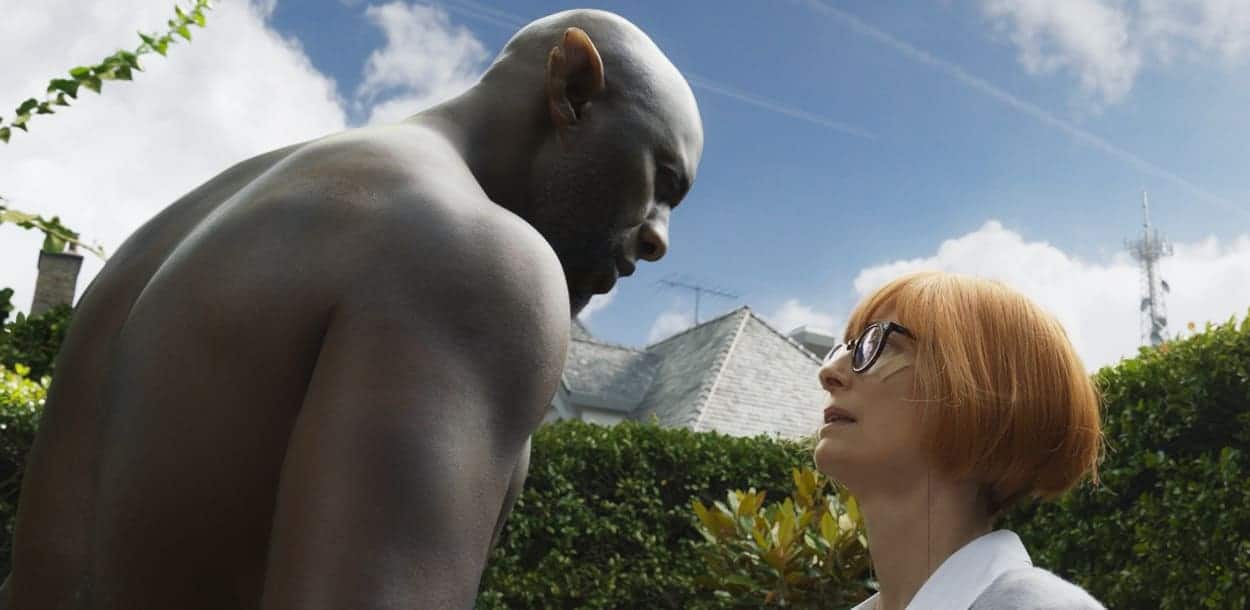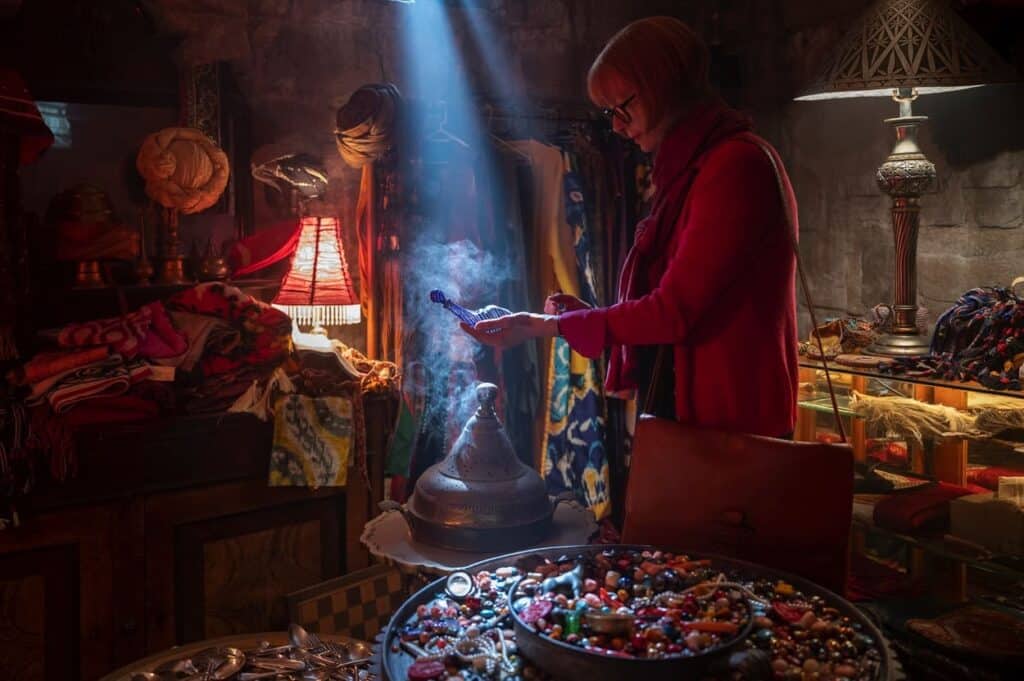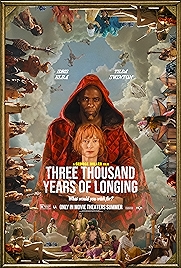The bomb of 2022 is what industry somebodies are calling Three Thousand Years of Longing. True, it didn’t do very good box office. It did terrible box office in fact. But streaming will probably claw back some of the deficit, where it’ll almost certainly be watched several times by quite a number of people. It’s that sort of film.
It’s a compendium affair, always a tough sell, with no explicit throughline, the story of a narratologist (a person who studies stories to reveal truths about humanity) who finds a bottle in a bazaar while at an academic conference in Istanbul and discovers that it contains a genie, or djinn as they now tend to be called.
The djinn, called Djinn, is played by Idris Elba. The narratologist is played by Tilda Swinton, who is again using a Northern British accent, as she often does when her characters are meant to be funny or depressing. Depressing is what you get with Alithea, a woman who has devoted her life to her work and who has never really, except once briefly (just enough so she knows what she’s lost), tasted love.
The djinn has tasted it several times and every time it’s brought him trouble. Incarceration in a bottle, to be precise, and this is the third time he’s quite by chance escaped. These experiences have left him older and wiser, Elba choosing to play the djinn as sleek but mellow and slightly dog-eared.
The film unfolds in a bland hotel room, where the djinn tells Alithea the stories of his love affairs, with the queen of Sheba for starters, but onwards through hundreds of years and a string of women, each of whom was in a different way trouble. Each “affair”, some more in thought than deed, wound up with Djinn as a prisoner in one bottle or another.
George Miller is the director, again showing the world he’s more than just the Mad Max guy. Indeed he is – he directed Babe: Pig in the City, Happy Feet, The Witches of Eastwick and Lorenzo’s Oil, so quite the range. He goes all in here, with an extravagantly lush approach to film-making which takes beautiful people, puts them on fabulously appointed sets, then adds bold colours, a riot of textures and gorgeous lighting and simmers till everything looks a billion dollars. Tarsem Singh did something similar in films like 2000’s The Cell or 2006’s The Fall. Miller again dragged DP John Seale out of retirement to do the lighting, as he did once before for Mad Max: Fury Road, and it’s Seale’s work that’s a large part of the reason why this film will get repeat viewings.
The Arabian Nights – tales of fantasy and longing peopled by smart women and men undone by lust – are the most obvious reference point, and it’s interesting to see an older, more exotic version of the Middle East reasserting itself, as the home of culture and learning, the sort of Middle East loved by Old Hollywood, full of grand viziers rather than ayatollahs.
The stories are all relayed, in voiceover, by the djinn, which puts a distance between us and them, and then there’s another layer on top, the slow burning developing relationship between Alithea and Djinn.
This does eventually get airborne, and so does the film, bizarrely, once locations have been swapped and Istanbul has been replaced in the home stretch by London, where Alithea and Djinn repair for some post-narratological analysis, or something.
A gruesome gear-change involving Alithea’s racist London neighbours to one side, here is where ends are tied up and Miller’s purpose becomes clear. People who fall in love don’t just have their own story to tell, they are also a link in an age-old narrative. Love connects people of the here and now to old mythical queens and wise men, beggars and kings, all beings, high and low, natural and supernatural.
Gorgeous, dense, bold and heartfelt, it’s a noble effort that ends with a satisfying clunk as things fall into place. It’s getting there that’s the slog.
Three Thousand Years of Longing – Watch it/buy it at Amazon
I am an Amazon affiliate
© Steve Morrissey 2022


